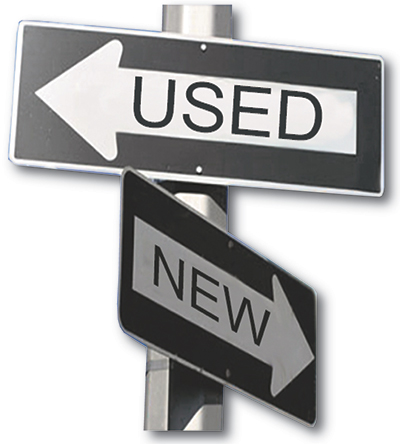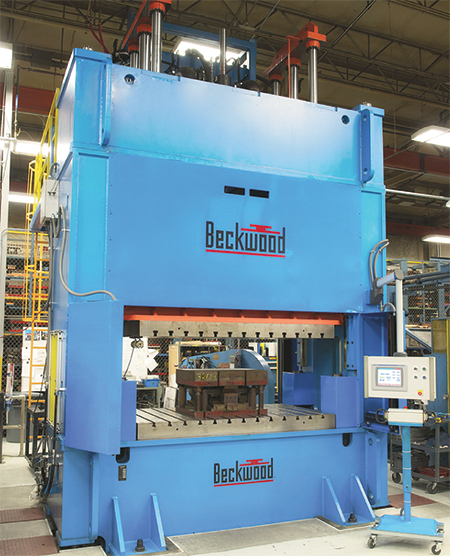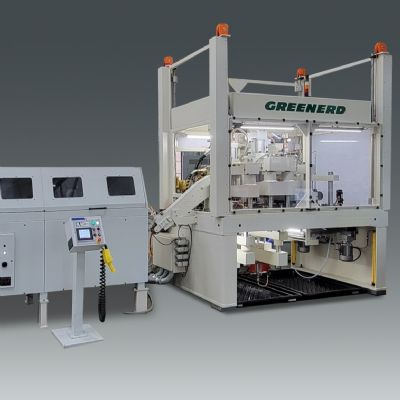2) What is the budget?
Capital-expense budgets should account for up-front and long-term costs. In most cases, used hydraulic-press equipment will feature up-front pricing that’s significantly lower when compared to a custom press. Metalformers with limited capital-expense budgets, despite their preferences for made-to-order machinery, might be limited to what can be found on the used market. And, in some cases finding a quality used hydraulic press that matches the application requirements can offer the best overall solution.
However, metalformers must understand that while offering up-front cost advantages, used equipment can be associated with certain long-term costs that result in higher overall project costs. These hidden costs include increased maintenance and repair requirements, and a loss of efficiency due to the adoption of equipment initially designed for a different application.
When comparing a new custom hydraulic press to a used alternative, consider these line-item costs:• Machine purchase price—Actual up-front cost of each solution
• Retrofit requirements—Controls, safety systems and other press modifications required to adapt to the application or company standards
• Facility change—Any changes needed to accommodate the incoming press (pits, other foundation work, etc.)
• Delivery and installation
• Setup—What, if anything, will need to be done to the press before it is operable?
• Annual maintenance costs, including spare parts
3) What is the timeline?
In most cases, by the time a metalformer’s acquisition team recognizes the need for capital equipment, conducts pertinent research and has a capital request approved, the available timeline for purchasing, installation and start-up has dwindled. On the surface, an expedited project timeline naturally lends itself to existing used equipment. However, in many situations the quick purchase of a used press, which has to then be retrofitted to fit the project or facility requirements, can result in a comparable, if not longer, lead time than a made-to-order press.
For both options, it’s important to consider carefully every conceivable pre-startup time requirement, to make the best procurement decision while minimizing project surprises.
When planning a project timeline, consider:
• When will the press be available?
• How long will it take to transport the press to the metalforming facility?
• How long will upgrades and retrofitting take?
• How long will testing take before the press is operable?
4) Are inhouse maintenance resources well-developed?
Any new custom press will feature modern components, OEM service-and-support resources and a warranty. This trifecta will, in most cases, act as a substantial buffer against unplanned downtime, lost production and angry customers. This especially is true for organizations without robust maintenance teams, and therefore lack the availability and knowledge required to maintain aging equipment. However, metalforming operations that do have solid inhouse maintenance personnel capable of keeping vital equipment running will be better able to gamble on used hydraulic presses.
Regardless of a manufacturer’s inhouse maintenance capabilities, those searching the used market should closely evaluate the age, condition and operation of any previously operated machinery. It’s important to know, prior to making any commitments, where the press was used and why it is for sale. Shoppers also should request any and all available service records, which will indicate how well the previous owners maintained the equipment. This information will either instill a sense of confidence in the used-purchase decision, or raise red flags that will help avoid disaster.
Service and Support
Whether you buy new or used, be sure to ask these questions regarding service and support:
• Who do we call if we need service or support? Even if it is not the same company you bought from, be sure to identify a contact person for support.
• What is the cost of service and support, and do we pay hourly, by a contract, per visit, etc.?
• What is the average turnaround time on a support call?
• What are the expected annual maintenance requirements for the press, in terms of time and expense?
• When was the last time this machine was serviced? Who performed that service?
• Is there anyone available that my internal maintenance team can contact with questions? MF
Article provided by Beckwood Press, St. Louis, MO: 636/343-4100; www.beckwoodpress.com.View Glossary of Metalforming Terms
See also: Beckwood Press Company
Technologies: Stamping Presses









